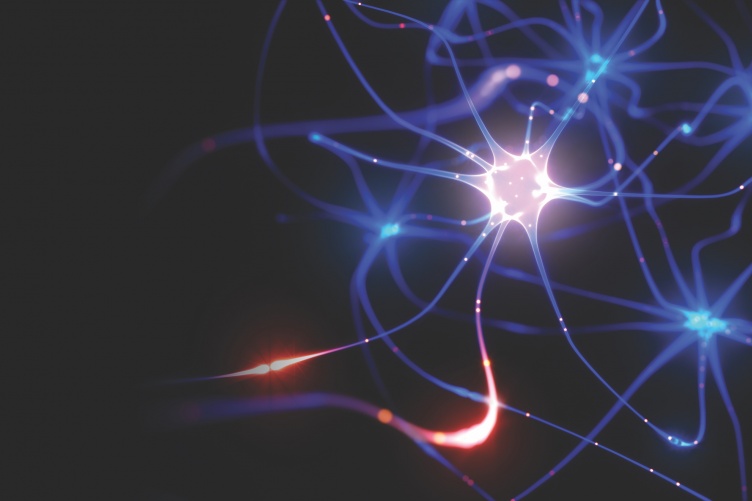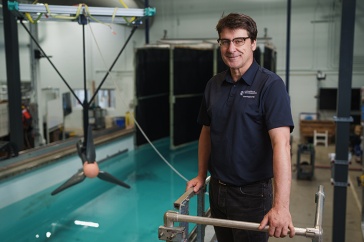
With a new R21 Trailblazer Award from the National Institutes of Health, assistant professors Edward Song (electrical and computer engineering) and Arturo Andrade (biological sciences) will conduct research that will contribute to our understanding of mental illness and brain diseases such as Alzheimer’s or Parkinson’s. The grant, for nearly $580,000 over 3 years, will help Song and Andrade implement a new electrochemical sensing platform that can monitor glutamate, a well-known neurotransmitter, with a level of resolution and accuracy that are not currently achievable with existing methods.
“If we could accurately measure glutamate with such high temporal and spatial resolution it will have many applications.”
Current technologies in measuring various neurotransmitters are limited by slow time resolution and therefore are not able to capture the fast dynamics of chemical release and uptake by the neurons — requiring a resolution of milliseconds or less to detect. “That limits neuroscientists in being able to study how neurotransmission works,” says Song. “We want to fill that gap with this technological development.”
Song notes that the majority of the synapses of the neurons in the brain uses glutamate-based signaling to exchange information. “If we could accurately measure glutamate with such high temporal and spatial resolution it will have many applications,” he says.
This project builds on previous research Song did in collaboration with UNH professor of chemistry Rudi Seitz in developing a novel biosensor. The researchers received additional funding from UNH’s Center of Integrated Biomedical and Bioengineering Research (CIBBR), Collaborative Research Excellence (CoRE) initiative and the Cole Interdisciplinary Faculty Research Fund for Neuroscience.
-
Written By:
Beth Potier | UNH Marketing | beth.potier@unh.edu | 2-1566
















































